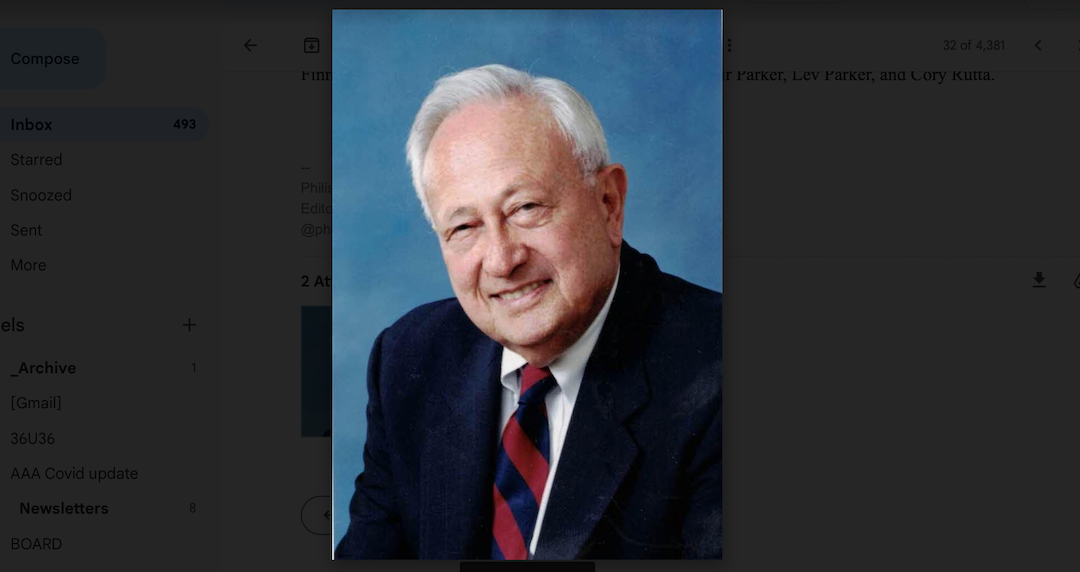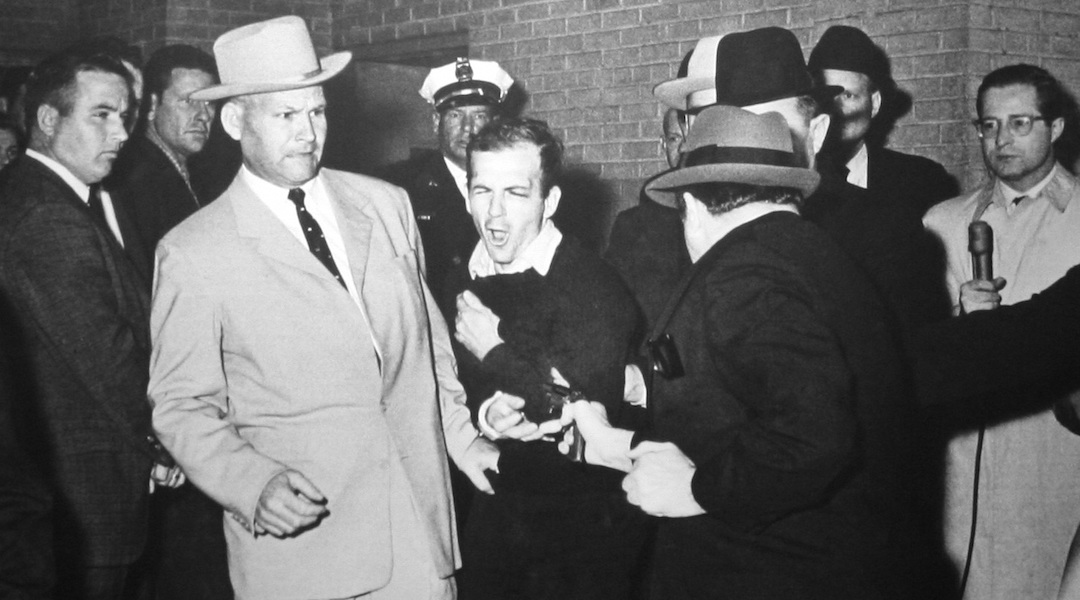Hillel Silverman, longtime rabbi whose congregant killed JFK’s assassin, is dead at 99
A journalist recalls the career and brush with notoriety of Silverman, rabbi of a Dallas congregation

Rabbi Hillel E. Silverman’s career in the rabbinate spanned over 70 years. (Courtesy)
(JTA) — “If you want to know about my brother, Jack Ruby, you should talk to Hillel Silverman. He was our rabbi in Dallas for 10 years before President Kennedy’s assassination, and he knew Jack very well.”
It was 1976, and I had convinced Eva Rubenstein Grant — a loud woman with an even louder red wig — to appear on an ABC program to speak about her brother, who fatally shot John F. Kennedy’s alleged assassin Lee Harvey Oswald on live television 13 years earlier.
It was years, however, before I was able to speak to Rabbi Silverman, for a TV program I was producing about the JFK assassination. Our conversation in 1991 was the first of several chats we had about Ruby (and other topics) and the glancing role Silverman played in the national trauma surrounding the president’s murder. He was one of the last surviving witnesses who testified in 1964 before the Warren Commission, which investigated the assassination.
The Kennedy assassination was a relatively minor aspect of a 70-year career in the rabbinate, during which Silverman served as the a rabbi at Congregation Shearith Israel in Dallas, and then as the senior rabbi at Sinai Temple in Los Angeles for 16 years, among other pulpits.
Silverman, the son of a prominent Conservative rabbi, died in Los Angeles this week of pneumonia at the age of 99. It was one month after he celebrated his birthday — and the birth of a great-grandson and the upcoming wedding of a grandchild — at Valley Beth Shalom in Los Angeles, where in his last official role he served as a visiting scholar.
Silverman was spiritual leader of Shearith Israel in Dallas from 1954 to 1964; Jack Ruby, a nightclub owner with links to the Mafia, was one of his congregants. Silverman told me in 2013, on the 50th anniversary of the Kennedy and Oswald murders, that Ruby would attend services to say Kaddish, the memorial prayer, for his father.
“He came to the minyan one day with a cast on his arm,” Silverman recalled. “I said, Jack, what happened? He said, ‘In my club, somebody was very raucous, and I was the bouncer.’”
Nov. 22, 1963, the day Oswald shot and killed Kennedy, was a Friday. Evening services at the synagogue “became a memorial service for the president,” Silverman said. “Jack was there. People were either irate or in tears, and Jack was neither. He came over and said, ‘Good Shabbos, rabbi. Thank you for visiting my sister Eva in the hospital last week.’ I thought that was rather peculiar.”
Two days later, Silverman switched on the radio and heard that a “Jack Rubenstein” had just killed the alleged assassin. The Warren Commission would later come to the still-disputed conclusion that Ruby acted alone — quashing rumors of a conspiracy — and shot Oswald on impulse and out of grief over Kennedy’s assassination.
“I was shocked. I visited him the next day in jail, and I said ‘Why, Jack, why?’ He said, ‘I did it for the American people.’”
I interrupted Silverman at that point, as I’d read other reports in which Ruby said he did it “to show that Jews had guts.” The rabbi sighed. “Yes, he mentioned that. But I don’t like to mention it. I think he said, ‘I did it for the Jewish people.’ But I’ve tried to wipe that statement from my mind.”
Silverman vividly described his weekly jailhouse visits to his now-notorious congregant, who was found guilty of murdering Oswald and who died in prison from lung cancer four years after the assassination. “In prison, Jack deteriorated psychologically,” Silverman recalled. “One time I walked in and he said, ‘Come on, rabbi, duck underneath the table. They’re pouring oil on the Jews and setting it on fire.’ He was quite psychotic.”

Hillel Emanuel Silverman was born in Hartford, Connecticut, in 1924 to Althea, a prolific author, and Rabbi Morris Silverman, a prominent Conservative rabbi who edited the Shabbat and High Holiday prayer books used by the movement for more than half a century.
Hillel was ordained as a Conservative rabbi after graduating from Yale University. Following his service as a Navy chaplain during the Korean War, he led the congregations in Dallas and Los Angeles, and served 20 years as a spiritual leader of Temple Sholom in Greenwich, Connecticut.
He and his first wife Devora had three children: Gila Rutta, Dr. Sharon Pollock and Jonathan Silverman, the actor best known for films such as “Weekend at Bernie’s” and “Brighton Beach Memoirs.” He is survived by his wife of over 40 years, Roberta Silverman, his three children, three step-children (David Smotrich, Debbie Diamond and Arona Smotrich), 12 grandchildren and three great-grandchildren.
Silverman wrote or co-edited a dozen books, and during a visit when he was 95 told me, “I think I still have one more in me.” He was the recipient of numerous awards, including a Medal of Honor from Israel’s then-Prime Minister Menachem Begin for his “distinguished service to Israel and the Jewish people.” He was past president of the Zionist Organization of America, Southwest Region.
In his 90s, he continued to officiate at High Holiday services in southern California, at times with one of his grandchildren, Rabbi Matt Rutta.
When the COVID pandemic shut down in-person classes, Silverman conducted weekly online Torah study sessions with Rabbi Ed Feinstein of Valley Beth Shalom synagogue. Sharp-eyed participants would notice a movie poster on the wall behind Silverman for “Weekend at Bernie’s II,” in which he appeared briefly as a restaurant maitre d’.
My final visit with Rabbi Silverman took place last October. He was in a wheelchair, living with his daughter Sharon and son-in-law Mark, and his mind and sense of humor remained as sharp as ever. Last month, I was thrilled to receive a birthday email from him, recalling our discussions about Ruby and wishing me continued success in my career. “Since I am thirty years ahead of you, I can guarantee many more productive, enjoyable years!” he wrote.
During his final hospitalization, a family member at his bedside asked about the rabbi’s former congregant one last time: Did Ruby have anything to do with a conspiracy?
The family shared a video of that moment with me, in which Silverman adjusts his oxygen mask, shakes his head and firmly says, “No!”
This article originally appeared on JTA.org.












